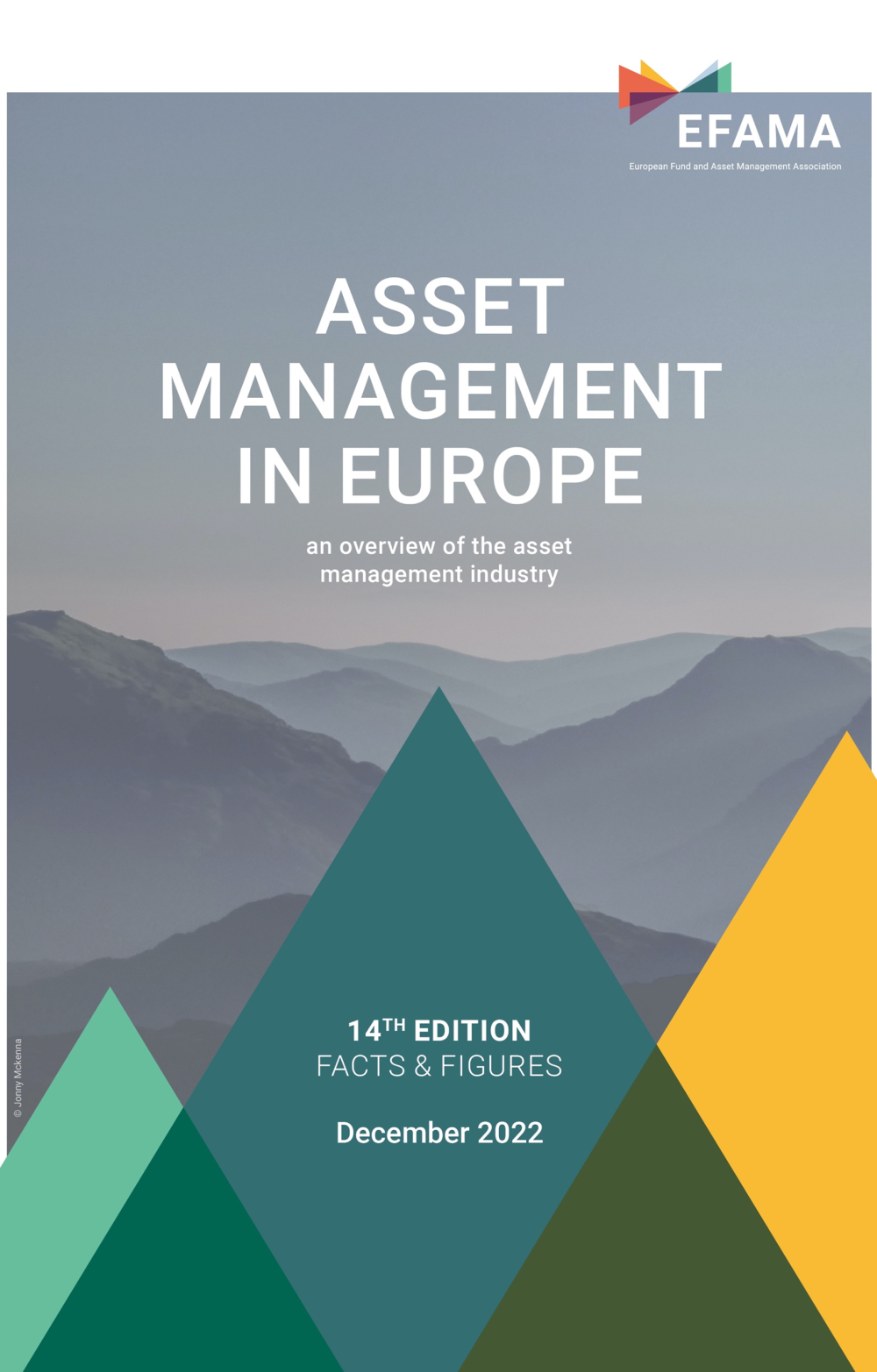EFAMA has today published the 14th edition of its Asset Management Report, which provides in-depth analysis of recent trends in the European asset management industry, focusing on where investment funds and discretionary mandates are managed in Europe.
This year’s report contains an extensive section on the role of asset managers in promoting ESG (incl. in discretionary mandates), concrete examples of how asset managers integrate ESG into sovereign debt analysis and help finance green projects through investments in green bonds, data on clients in both investment funds and discretionary mandates, an analysis by McKinsey & Company on the future of sustainable investing, and a contribution by Cerulli Associates on how European insurers use third-party asset managers to navigate the investment and regulatory environment.
Key findings of the report include:
- Assets under management (AuM) – Total assets under management (AuM) in Europe grew to EUR 32.2 trillion at the end of 2021. The outbreak of the war in Ukraine, the sharp rise in inflation and interest rates, and the resulting slowdown in economic growth led to a sharp fall in bond and stock markets in 2022. This resulted to an estimated decline in total AuM to EUR 28.4 trillion at the end of September.
- AuM across countries – Asset management in Europe is concentrated in six countries where almost 85% of asset management activity takes place. The United Kingdom is the largest European asset management market, followed by France, Germany, Switzerland, the Netherlands and Italy.
- Investment funds and discretionary mandates –The share of investment funds in total AuM has risen steadily to reach a record of 56.6% at the end of 2021. The higher share of equity in the portfolio allocation of investment funds combined with strong rise in stock markets in 2021 is the main reason behind this evolution.
- Financing the European economy – The outstanding amount of debt securities and listed equity issued in Europe and held by European asset managers at the end of 2021 stood at an estimated EUR 6,989 billion and EUR 3,648 billion, respectively.
- Sustainable UCITS – At the end of September 2022, the net assets of sustainable bond and equity funds amounted to EUR 343 billion and EUR 1.1 trillion respectively, based on data from Refinitiv Eikon and Morningstar Direct. Our analysis shows that high environmental scores tend to be associated with high social and governance scores.
- Industry clients – The share of retail clients increased to 28% of total AuM in 2021, as European households regained confidence in capital market instruments. Two other trends are also noteworthy: the steadily increasing share of other institutional clients, such as foundations, charities, holding companies or large corporations, and the increased importance of foreign clients in the client base of European asset managers.
- Asset allocation – During the period 2018-2021, the share of listed equity in the asset allocation of asset managers increased from 28.4% to 32.7%, boosted by the strong performance of global stock markets. Mirroring this evolution, the share of bonds fell from 40% in 2018 to 36.4% in 2021.
EFAMA’s Director General, Tanguy van de Werve, commented:
“2022 has been a difficult year for asset managers and their clients, as the war in Ukraine, the sharp rise in inflation and the tightening of monetary policy have had a very negative impact on global financial markets. But the current difficulties should not make us lose sight of the bigger picture and the need to further develop and integrate European capital markets and support the sustainability transition. The European asset management industry remains fully committed to playing its role in pursuit of these objectives, by helping investors achieve their financial goals, channelling long-term savings into the economy, and addressing the fast-growing demand for dedicated ESG strategies.”
Bernard Delbecque, EFAMA’s Senior Director, added:
“Institutional investors outsource about 30% of their assets to third-party asset managers, with the remainder managed in-house. There is therefore a huge untapped potential for asset managers to increase their share in the institutional market. The rise in regulatory requirements, the need to develop ESG investment solutions and engage with companies to improve their ESG performance, the increase in the cost of market data, data analytics and artificial intelligence applications, are good reasons to believe that a growing group of institutional investors will rely on asset managers in the coming years, to benefit from the economies of scale that can be achieved in the asset management industry.”
- ENDS -
Notes to Editors
Graphs and country-specific data are available for reproduction.
For further information, please contact:
Hayley McEwen
Head of Communications & Membership Development
Tel: +32 2 548 26 52
Email: Hayley.McEwen@efama.org
About the Asset Management Report
The EFAMA Asset Management in Europe report provides a precise picture of the European asset management industry, focusing on the countries where assets are managed. This perspective is distinct from most other EFAMA reports, such as the Fact Book, the monthly Fact Sheets, or the quarterly statistical releases, which analyse trends in the European investment fund market from the standpoint of the countries in which funds are domiciled or owned.
The report is primarily based on data provided by 19 national associations: Austria, Belgium, Bulgaria, Croatia, Czech Republic, Denmark, France, Germany, Greece, Hungary, Italy, the Netherlands, Poland, Portugal, Slovenia, Switzerland, Spain, Turkey and the United Kingdom (UK). Additional internal and external data have been used to estimate the assets managed in other European countries.




























